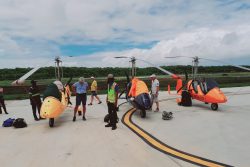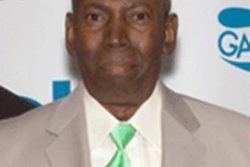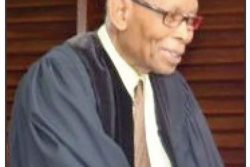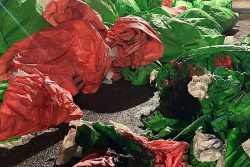Dear Editor,
It occurred to me to enquire what percentage of the population today was around at the time of independence in 1966, and can therefore fully grasp the meaning and esprit of that experience.
More specifically, I wondered how many of the planners of the forthcoming 2016 celebrations have in fact been in touch with the emotions and aspirations engendered by the event. For example, would they have known of Prime Minister Burnham’s invitation to Guyanese Rudolph Dunbar, then based in the UK, who had been selected to conduct the Berlin Philharmonic Orchestra in 1945 on the defeat of Germany in World War II?
Dunbar was specially tasked to conduct a hundred voice choir, supported by a combination of our own local symphony orchestras, who together rendered A J Seymour’s epic poem – ‘The Legend of Kaieteur’ set to music by Philip Pilgrim.
This musical exhibition was a pivotal part of the cultural programme mounted to mark the independence of a fledgling nation. Memorable too was a display of the groundbreaking art forms of Philip Moore – all heard, and viewed, within the walls of a relatively new Queen’s College, the only building in Georgetown that could have provided the requisite accommodation for visitors from far and wide.
It seems appropriate that it be recognised that opportunity should be taken during the current celebrations to recreate, as much as possible, the agenda of that historic occasion.
Hopefully, in the process, some effort will be made to revive the spirituals, shanties, and other local songs so regularly rendered at the time, vocally and instrumentally; along with the sounds of the steel and masquerade bands. Should there not also be a revival/recreation of the Woodside and Police Male Voice Choirs; the Koulens and the Lonckes?
Few too would have heard of Madame Fraser-Denny, the first (possibly only) Guianese to lend her classical soprano voice to Italian Opera. Pianists Ray Luck and Hugh Sam must be brought back; and Robert Lalljie should be invited to replay the highly acclaimed performances by his late mother Joyce Ferdinand-Lalljie, of ‘Demerara’ songs. Nor should Rodway’s ‘Born in the Land of the Mighty Roraima’ be overlooked.
But for the energetic, mobile, technological generations, who are more familiar with modern environments and standards across the diaspora, as well as their friends and relatives who would be visiting for the first time, it would be something just short of an international triumph if the road to the Ogle International Airport were to be rebuilt, flooded with lights and bedecked in flags, so that commuting in, after touch-down, would make for a proud welcome home.
Climactically, however, should there not be some recognition of a sugar industry that has survived more than 300 years?
Yours faithfully,
E B John









